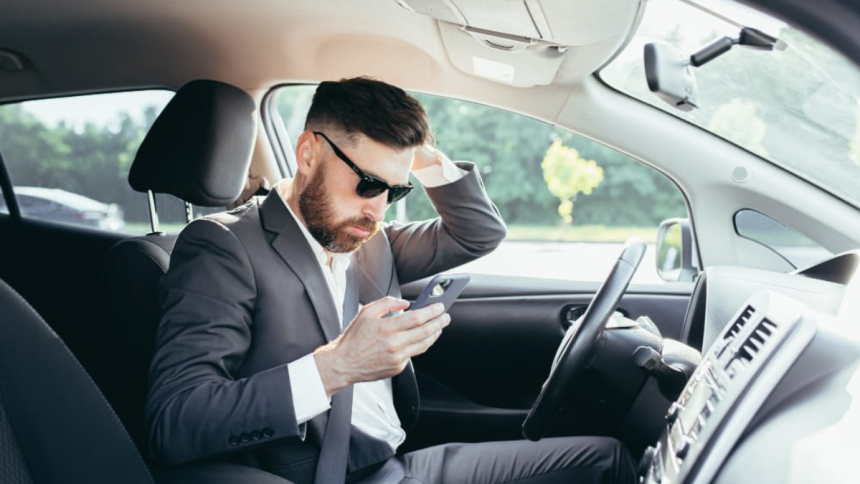Uber and Lyft claim to offer safe, reliable rides—but for many passengers, that promise hinges on the assumption that drivers are properly vetted. Both companies promote their background checks as proof that they take rider safety seriously. But when accidents, assaults, and misconduct make the news, one question becomes unavoidable: Are those background checks actually working?
The answer isn’t as simple as “yes” or “no.” While background checks are a step toward passenger safety, they are far from foolproof. Rideshare platforms rely on databases and third-party screeners that may miss red flags, outdated offenses, or conduct that was never formally reported. Understanding how these checks work—and where they fall short—is key to understanding the real risks of getting in a rideshare vehicle.
What Do Uber and Lyft Background Checks Include?
Both Uber and Lyft conduct background checks that focus on criminal records and driving history. These typically include:
- A review of national and local criminal databases
- A search of sex offender registries
- A check of driving records for DUIs, reckless driving, and suspended licenses
Drivers must pass these checks before they’re approved and undergo periodic rechecks while driving for the platform. However, these screenings are conducted by third-party companies, not law enforcement, and rely heavily on public records, which can be incomplete or outdated.
The Limitations You Don’t Hear About
What these background checks don’t include is just as important as what they do. Most notably, they don’t involve fingerprinting, which is considered the gold standard for identity verification. Without fingerprinting, there’s a greater chance of missing criminal history linked to aliases or identity fraud.
Additionally, background checks can miss offenses that occurred in other states, were expunged, or never resulted in charges, such as incidents where complaints were made but not formally investigated. When a serious injury or assault occurs, victims often turn to experienced legal teams like Meyers & Flowers to uncover the full scope of a driver’s past, especially when the rideshare company fails to act on prior complaints.
No Check Can Predict Future Behavior
Even the most comprehensive background check is a snapshot of the past, not a guarantee of future conduct. Someone with a clean record can still drive recklessly, violate policies, or make unsafe decisions. This is especially concerning in high-pressure gig environments where drivers are incentivized to accept every fare, skip breaks, and speed between pickups.
Passengers assume that “five-star” drivers are safe, but rating systems can be misleading. A well-rated driver may still be fatigued, distracted, or behaving unethically behind the scenes. Ultimately, safety depends as much on company policies and real-time accountability as it does on initial vetting.
When Lyft or Uber Ignore Warning Signs
Another major concern isn’t just how background checks are performed, but how rideshare companies respond to complaints after a driver is hired. Many cases of violence or negligence involve drivers who had previously been flagged for inappropriate behavior but were allowed to continue operating.
In some situations, Uber or Lyft may fail to suspend a driver after a passenger files a report, or may not investigate complaints at all unless criminal charges are filed. This creates an environment where dangerous individuals can remain on the road, and legal action becomes the only avenue for accountability.
Passenger Rights After an Uber or Lyft Assault or Injury
If a passenger is injured in a crash or assaulted by a rideshare driver, they have the right to pursue compensation. This may come from the driver’s personal insurance, the rideshare company’s commercial liability policy, or even from third-party liability if another vehicle was involved.
The rideshare company’s failure to properly screen or discipline a driver can be a central part of a lawsuit. Victims may also seek damages for emotional distress, medical expenses, lost wages, and long-term trauma, especially in cases involving negligence or systemic failure.
What to Do If You Feel Unsafe in a Rideshare
If you ever feel unsafe during a Lyft or Uber ride, trust your instincts. Options include:
- Ending the ride early and exiting in a public, well-lit area
- Calling 911 if you’re in immediate danger
- Reporting the driver within the app and following up with a written complaint
- Documenting the ride details with screenshots or timestamps
While in-app safety tools exist, they often depend on user action and may not always provide immediate help. Knowing how to respond—and seeking legal help afterward—can make all the difference.
How Rideshare Background Checks Compare to Other Transportation Industries
Unlike taxi drivers, who are often fingerprinted and required to pass local regulatory checks, rideshare drivers face far less scrutiny. Commercial bus and truck drivers must carry commercial driver’s licenses (CDLs) and adhere to stricter Department of Transportation guidelines. Uber and Lyft, in contrast, operate with a tech-first model that prioritizes scale and efficiency over stringent human vetting.
This gap has sparked criticism from consumer safety advocates and led some cities to consider their own background check standards for rideshare drivers, though many efforts have faced pushback from the companies themselves.
Can You Sue If the Background Check Missed Something?
Yes. If a passenger is harmed and it’s later discovered that the driver had a disqualifying history that Uber or Lyft failed to uncover or ignored, there may be grounds for a lawsuit. In such cases, rideshare companies can be held accountable for negligent hiring or retention practices.
A thorough legal investigation can uncover whether the company followed its own policies, whether the background check was adequate, and whether red flags were missed. These lawsuits aren’t just about compensation—they help push for stronger safety protocols across the industry.
Public Trust Is Fading—and Lawmakers Are Taking Notice
As more high-profile incidents involving Uber and Lyft drivers make headlines, public trust in rideshare safety is showing signs of erosion. Passengers are asking harder questions, and lawmakers are beginning to take action. Several cities and states have proposed bills requiring fingerprint-based background checks, mandatory driver training, and more transparent reporting systems for passenger complaints.
Rideshare companies have historically pushed back against tighter regulation, citing flexibility and innovation. But as safety concerns grow, so does the pressure to adopt more stringent screening and accountability measures. For now, legal action by victims remains one of the most effective ways to demand change and shine a light on the limitations of current background check systems.
Lynn Martelli is an editor at Readability. She received her MFA in Creative Writing from Antioch University and has worked as an editor for over 10 years. Lynn has edited a wide variety of books, including fiction, non-fiction, memoirs, and more. In her free time, Lynn enjoys reading, writing, and spending time with her family and friends.















